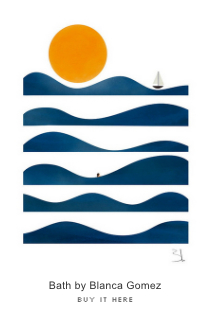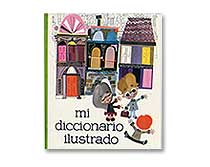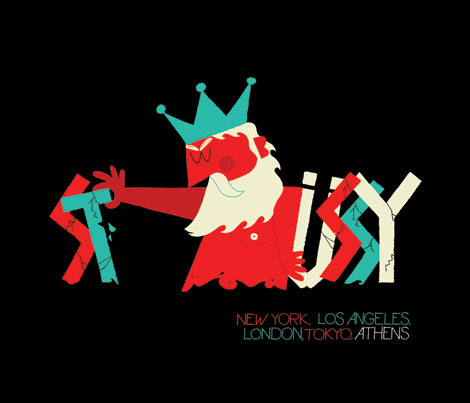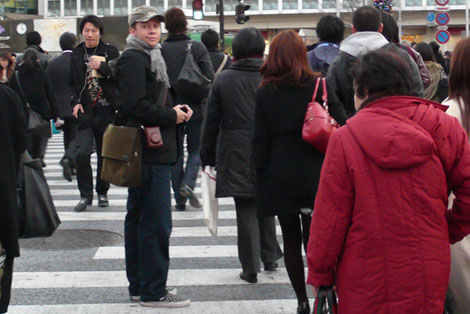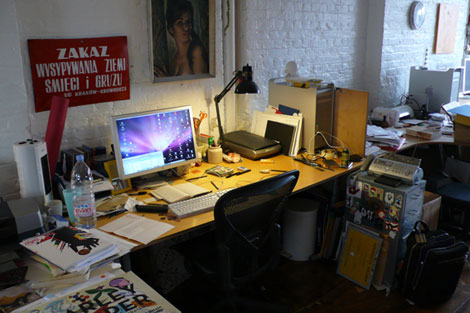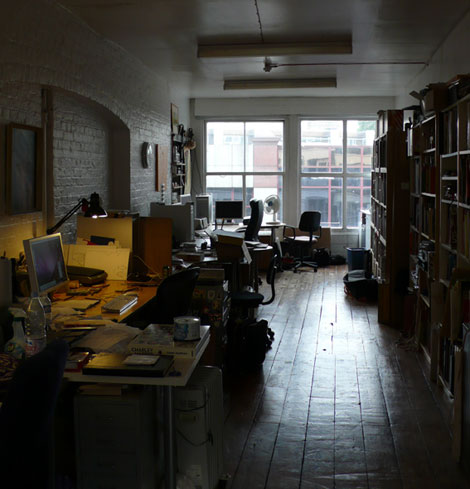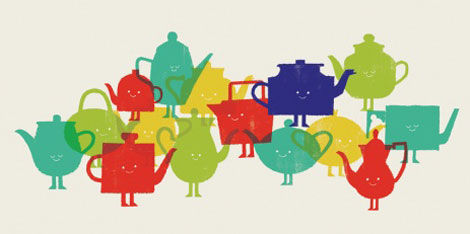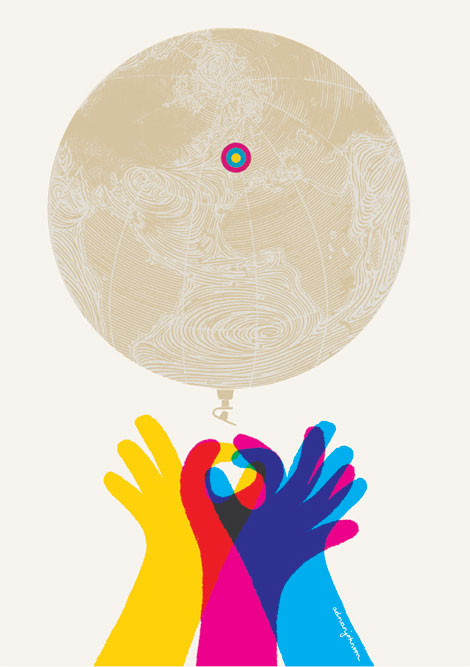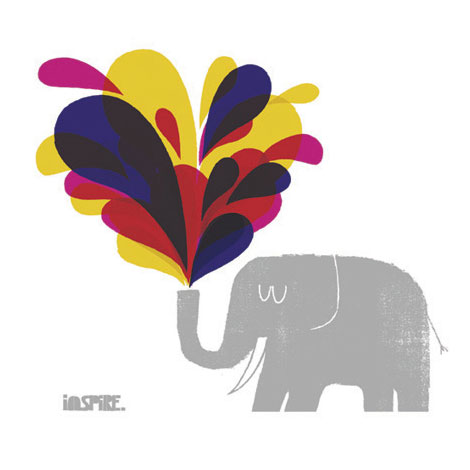Adrian Johnson interview
In the midst of Grain Edit’s one year anniversary, we’re super excited to bring you this interview with Adrian Johnson. Mr. Johnson is a UK-based designer/illustrator whose work spans editorial, print, motion, and his own self-initiated projects. He has designed for Mastercard, Giant Robot, Vodafone, and Stussy, to name a few. In the interview, Adrian talks about his background, inspirations, creative process, and of course, zeitgeist.
A lot of work nowadays is stylish, and fun, and cool, but can ultimately become irrelevant due to poorly executed ideas, or lack of decent concepts. I see Adrian’s work as a nice balance between kick-butt graphics and style, and smart ideas that get through to people.
1. Where are you from originally?
Originally I’m from Liverpool. I moved to London to go to art college and have been in or around London ever since (14 years I believe). A couple of years ago we moved out to the countryside (well nearly- there are cows and sheep and stuff like that) and since then I’ve commuted into the Smoke every day on the train with all the suits.
2. How did you become interested in graphic design?
I’ve always been interested in design- that’s another way of saying I can’t count or spell, and I went off the idea of being in the SAS around about puberty.
Studio photos
3. Did you attend a design school?
Yeah, I studied Illustration at Kingston University. It was / is a great art college affiliated to a not-so-great former polytechnic on the outskirts of London. It was a pretty hardcore degree- lots of intensive life / location drawing which is perhaps considered quite old fashioned these days.
4. What was your first design job?
It was a children’s book called ‘What! Cried Granny’ in 1997. It was all hand painted (badly- I’ve never been that good with paint), and is still in print today. It’s page after page of cringe-inducing nausea…
5. What are your biggest design influences? What current designers do you admire?
It’s funny, as influences go they’re pretty obvious, especially in the context of this website. When I was at college I was really into Paul Rand, Saul Bass, Saul Steinberg… the usual suspects. I’m obviously into 50s and 60s design in general, and in turn, people keep on bombarding me with more great stuff from the era. A year or two ago a graphic artist friend of mine, JAKe, sent me a link to Ryohei Yanigahara- that was a bit spooky to say the least as I’d never seen his (amazing) work before, and there were obvious similarities. With the internet (Grain Edit in particular!) you have access to so much inspirational design. I’d have never come across the likes of Charley Harper, Jim Flora, or Miroslav Sasek without it… When I was at art college you just didn’t have so much at your fingertips… which might have been a good thing in retrospect. The thing is, I’ve always striven not to reference any existing work, full stop… I consider myself more conceptually driven / inspired, with the idea leading the way, as opposed to being more stylistically led.
Of the current crop of designers, you can’t help but doff your cap in the direction of Geoff McFetridge. He’s mighty.
Various illustration and design work.
6. What is the typical adrian johnson work day look like?
I’m certainly no early riser, although that will change soon with the imminent arrival of our first child. I tend to rock into the studio for around 10.30am, but once I’m locked into the hot seat, that’s me scribbling until it’s time to eat a cheese sandwich. Then I work some more until it’s time to go home to eat something more substantial.
7. How would you describe your creative process?
It wholly depends on what I’m working on. Obviously if I’m working on an editorial feature I’d sit down with the copy, a coffee, and a highlighter pen. Then I’d knock out a few thumbnails in sketchbooks or on random sheets of paper. In fact, too much of my work begins on random sheets of paper that in turn somehow evaporate into the ether, thus leaving me scratching my head thinking ‘why didn’t I just work in the sketchbook’. oh, it’s crazy around here…
As for self-initiated stuff, a lot of my ideas come whilst I’m on the train on the way to or from the studio, and quite often totally random and inappropriate places….
I’m also really into daft puns and word play, actually, words in general, so reading the newspaper or a book often sparks something off.
Top: Cover image for Monocle about gold production. Bottom: Samurai image for the ‘Insiders, Outsiders, and The Middle’ show at Scion Installation L.A, curated by Giant Robot.
8. Where do you draw inspiration from?
I honestly don’t know. Sometimes I leave inspiration at home- probably in the bath or watching TV.
9. How do you pair a concept with your distinct style?
This is the crux of what I do / aspire to do. I like to take on a strong concept- perhaps quite a serious one, and juxtapose it with something perhaps a little bit daft, charming or puerile. That is always the challenge I set myself- imagine as being tickled under the chin then a taking frying pan to the face… with a comedy ‘gong’ sound reverberating in your eardrums shortly after.
10. How do you know when a project or illustration is finished?
When there’s no more time or money left, or I decide that I think what I’ve done is so unbelievably shit that nothing I can do can rescue it.
I have this curse, even when I’m happy with the artwork and call it a day, I think it’s shit the day after.
Top: Ad for Vodafone. Bottom: Artwork for PartOfIt.org
11. You are currently in a show curated by Giant Robot in Los Angeles. How much of your work is personal vs. commercial? Do you prefer one or the other?
I honestly believe there has to be a balance. I’ve found that in the past taking a brief sabbatical from commercial work has been hugely beneficial from a creative perspective. Commercially It’s easy to be pigeon-holed (as an illustrator)- as a result you end up producing a whole load of work that’s more or less the same- formulaic (especially in editorial). It’s all about integrity as an artist isn’t it? Integrity weighs heavily on my shoulders on a dally basis, but at the end of the day you’ve got to earn a living. The two (integrity and commercial work) rarely co-exist (in my case). Nothing would please me more than to produce self-initialted work on a full time basis and get paid to do it- that’s a bit of a Holy Grail as far as I’m concerned. The reality is though at this moment in time I’m doing mostly commercial work and try to find the time to do personal work whenever I can- not the other way around. Sorry if this seems like I’m rambling, but it’s really quite an issue for me… I’ve worked on quite a few advertising campaigns in the last 18 months where very often you’re just a ‘wrist’… You’re commissioned more or less just for what you do from an aesthetic perspective. This is often unbelievably frustrating as quite often the work I’ve produced that has the biggest audience is the work where I’ve had the least creative input. There’s also a fair degree of ‘turd polishing’ if you get my gist. Commercial work is often all about compromise, but that’s the nature of the beast isn’t it? At the end of the day you’ve got to like what you do… I get a much greater sense of satisfaction / fulfillment from personal work.
Anyway, I digress. The Giant Robot show was a lot of fun. No brief, you just go ahead and produce some artwork, which was obviously liberating. Whilst working on the stuff for the show I had a little epiphany where I realized that I tend to put too much pressure to be clever, informative, or conceptual. I decided I wanted to draw a samurai, because- well, just because, and samurais are cool aren’t they? It sold almost as soon as the doors opened strangely enough…
One last thing on the subject though. Whenever I’ve taken time away from commercial work I really miss it, and it’s exactly the same vice versa. I’m so hard to please… I know, it’s my thing, deal with it etc.
Top: Various Illustration. Bottom: Illustration for 2K By Gingham
12. A lot of your work has that entertain and inform aspect to it. Can you elaborate on how you’re able to make those necessary connections, and come out with a cool piece?
I think the ‘entertain and inform’ aspect as you put it perfectly illustrates what’s at the core of what I do. I’ve found that I couldn’t really get across what I wanted to say with image alone. The interaction of image and text and the whole aesthetic of text and image in harmony is something I’ve been into since I was a student- inspired by graphic design.
13. Can you offer any advice for newer designers struggling with the concept vs. style problem?
I think a lot of students think that it’s all about having a recognizable style- you know, like being a ‘brand’. I get the impression over the last few years (in the UK in particular) that many illustration students / graduates are directly influenced by contemporary illustration / illustrators. It’s all about zeitgeist. It’s understandable I suppose- you just surf the net, see some great websites and there’s your inspiration. Because the internet hadn’t really taken off at the beginning of my career my work was more influenced by the music I was listening to, the books I was reading, or the films I was watching.
Whenever I’m teaching (which is not that often these days) I find myself saying the same thing. Ideas never go out of fashion. Style does.
Top: T-shirt design for Stussy. Bottom: Illustration for the children’s book, “Gently Elephant!”
14. Any current projects you can talk about?
Yeah, I’m working on another animated TV advertisement with Nexus Productions (who I worked with on the animations for Robinsons and MasterCard) for an ad agency in San Francisco. It’s exciting as unusually for this sort of thing it’s my original concept, script, and design. When that’s finished I’m slowing things down for a couple of months once the baby’s born. That’ll be quite a project…
——————————————————-
We would like to thank Adrian for taking the time to share with us. You can see the rest of his work, and keep up-to-date with his shows and happenings on his website. Adrian is represented by CIA, Boutique / Bernstein & Andriulli (USA), and Tiphaine (France).
You can purchase original prints, posters, and t-shirts from Adrian at his shop.
——————————————————-
Enjoy reading this interview? Please leave a note in the comments and consider signing up for the grain edit RSS feed.
Tagscontemporary, graphic-design, Illustration, UK



















